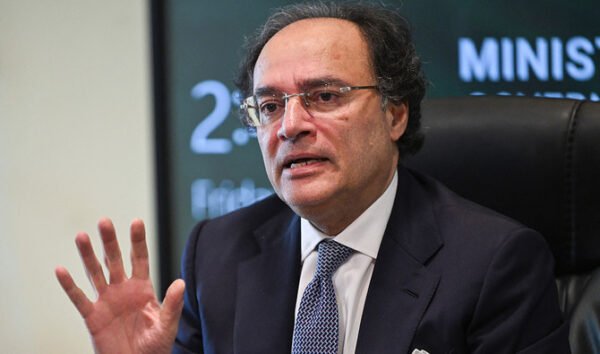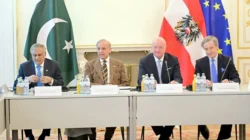Finance Minister on reforms mission

31 March 2024
Published in: Pakistan Observer
The speech of Finance Minister Muhammad Aurangzeb at Pakistan Stock Exchange and media talk in Karachi on Friday sent strong signals to all concerned that the government is fully motivated to carry forward the process of reforms and its successful implementation would, hopefully, address most of the economic and financial woes of the country. The Minister declared that they were not waiting for action but have already initiated crucial reforms and a fresh programme with the International Monetary Fund (IMF) will have to be finalized, at least for three years, to take the process of restructuring to fruition. On the basis of their bitter experience of the past, people of Pakistan have become weary of the term ‘structural reforms’ as it always meant more inflation and tax burden for them but they can get solace from the Minister’s vision that it was unsustainable to add burden of taxes on those already paying taxes. It is a welcome departure from the past that he intends to increase the tax collection meaningfully by plugging huge leakages and bringing the under-taxed sectors in the loop.
It is now a foregone conclusion that status quo was suicidal for the economic future of the country and innovative reforms will have to be carried out in different areas to put Pakistan on a path of firm and sustainable growth. It is a matter of satisfaction that Aurangzeb, who has 35 years of rich and diverse experience at home and abroad, is proceeding on a war-footing to show positive results. After signing an agreement with a private firm for end-to-end digitization of the Federal Board of Revenue (FBR), which is aimed at realizing optimum tax potential of the country and addressing corrupt practices, he has now outlined plans to boost tax revenues by a substantial Rs. 2.5 trillion. The strategy, among others, entails resolving financial disputes within three months and implementing a track and trace system. Addressing concerns of the corporate sector, the FM emphasized that super taxes, windfall taxes and businesses reliant on import-led subsidies are no longer sustainable moving forward. It is hoped that practical implementation of this philosophy would help stop the trend of shifting of company offices abroad due to heavy taxation. After a hiatus of many years, the government is poised to implement the much-needed plan to bring retailers into the tax net through the Tajir Dost Scheme with effect from April 01, 2024. The FBR will kick-start registration in the scheme in six cities — Karachi, Lahore, Peshawar, Quetta and Islamabad and Rawalpindi — in the first phase and the tax collection will be made effective from July 1. It is also known to all that the loss-incurring state-owned enterprises have become one of the major sources of haemorrhage of the scarce national resources and with this in view the government is prioritizing reforms and their privatization. Aurangzeb was confident that privatization of PIA and outsourcing of airports would be completed before the close of the ongoing financial year. However, this privatization is coming at a huge cost to the tax-payer as its commercial debt amount to Rs.268 billion has been converted into public debt. As was decided in the past, proceeds of privatization should be used exclusively to retire public sector debt. The Finance Minister also declared that the private sector would lead growth and the country, infrastructure projects would be done on a public-private partnership model to create a fiscal space with the government. There is also a plan to outsource power distribution companies on a priority basis and progress would be monitored on daily and weekly bases. It is also important to note that the Minister aims to focus on modernization of agriculture and exploitation of technological potential of the country besides attracting investment in export-oriented sectors under the second phase of the CPEC. All these measures have the potential to bring the economy back on track and, therefore, need to be implemented in letter and in spirit.





